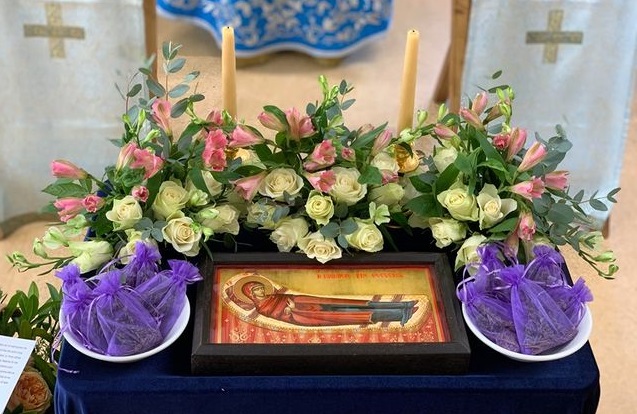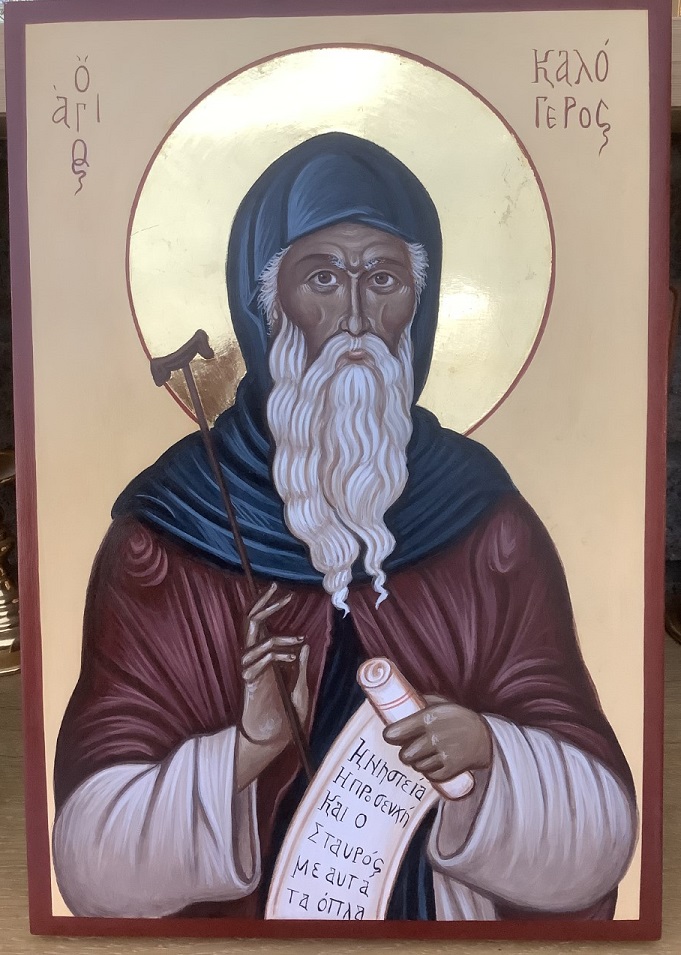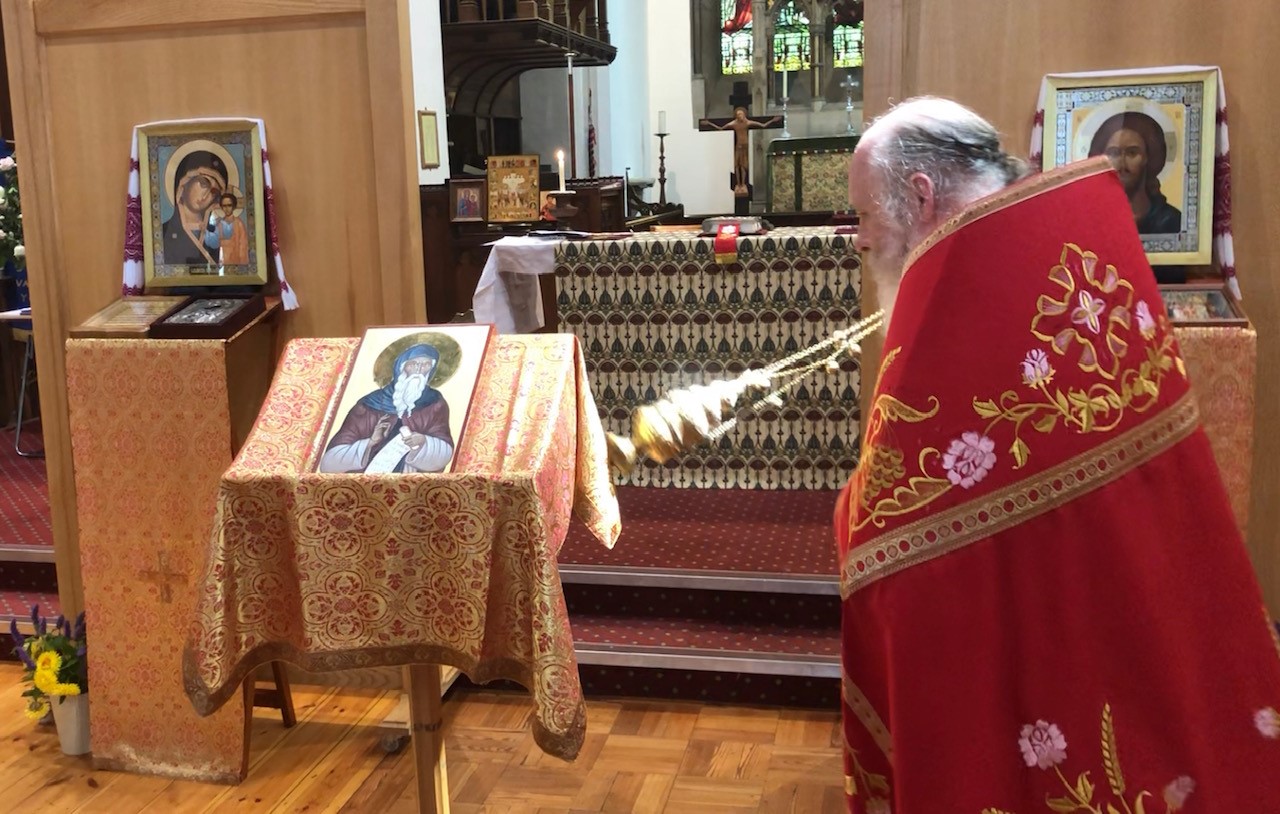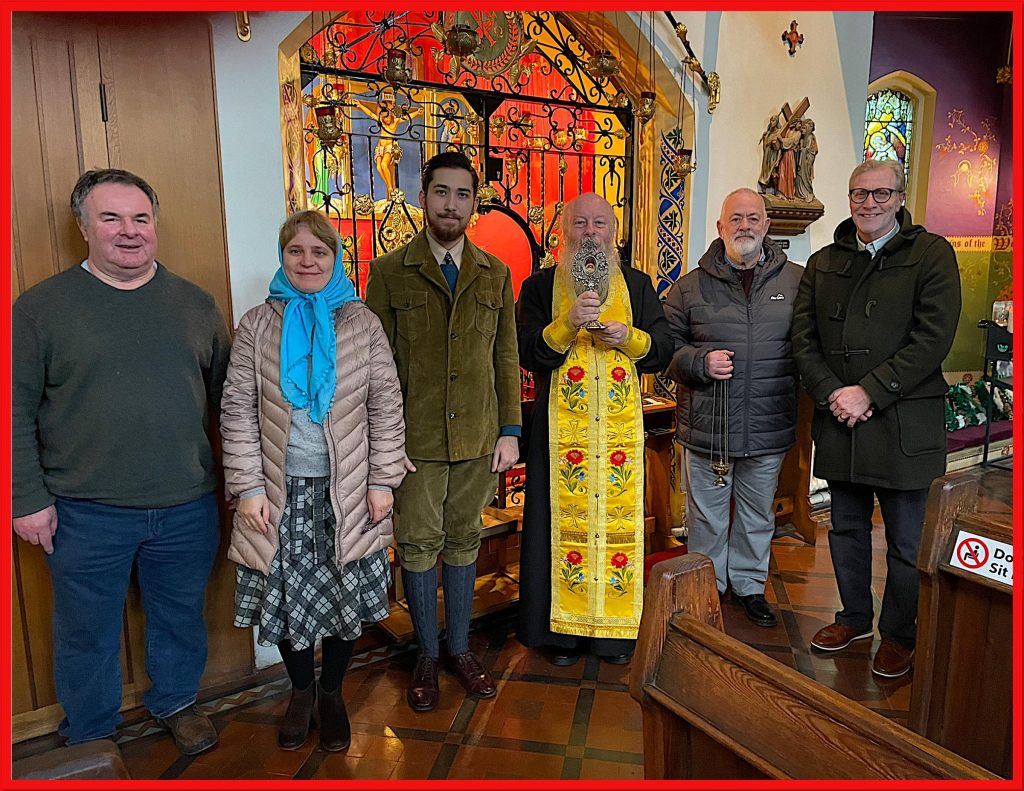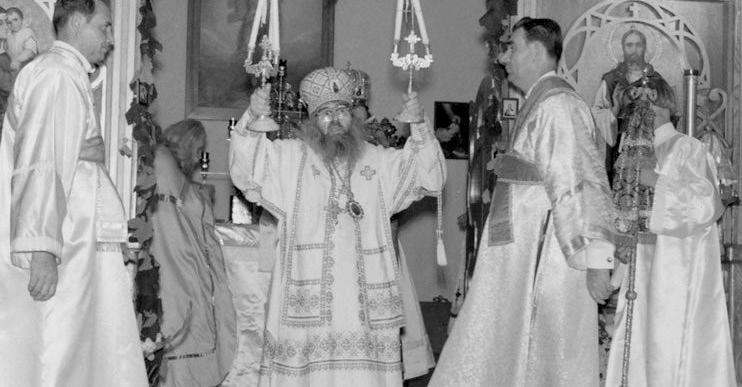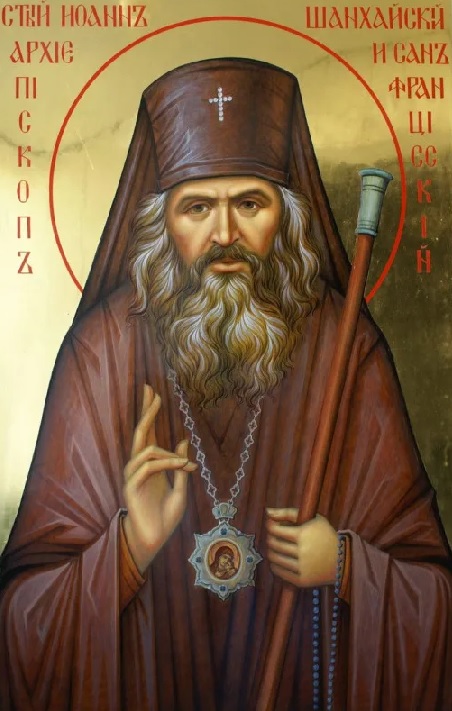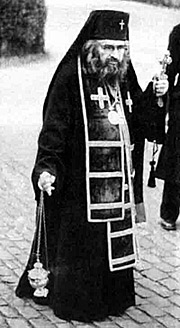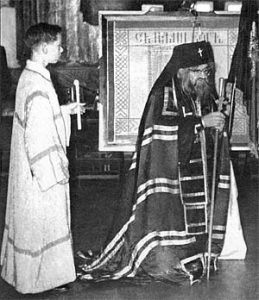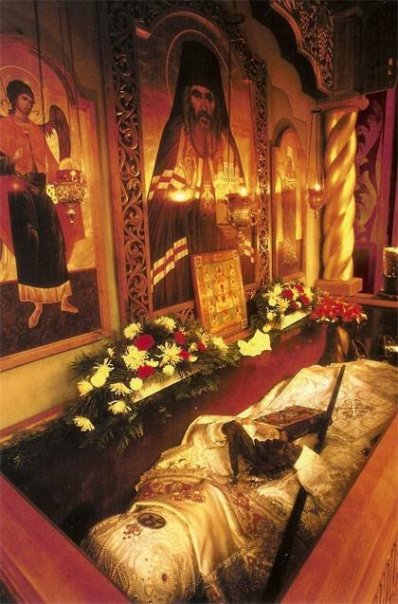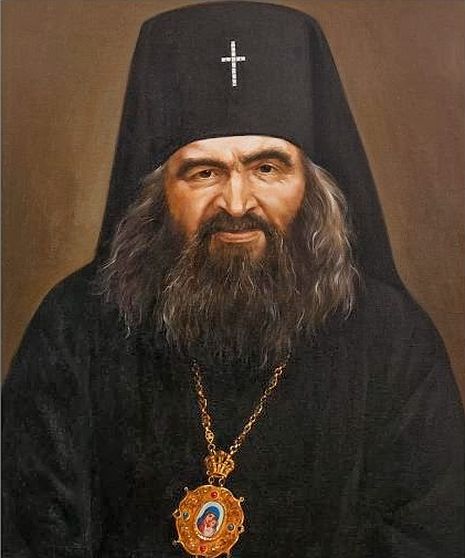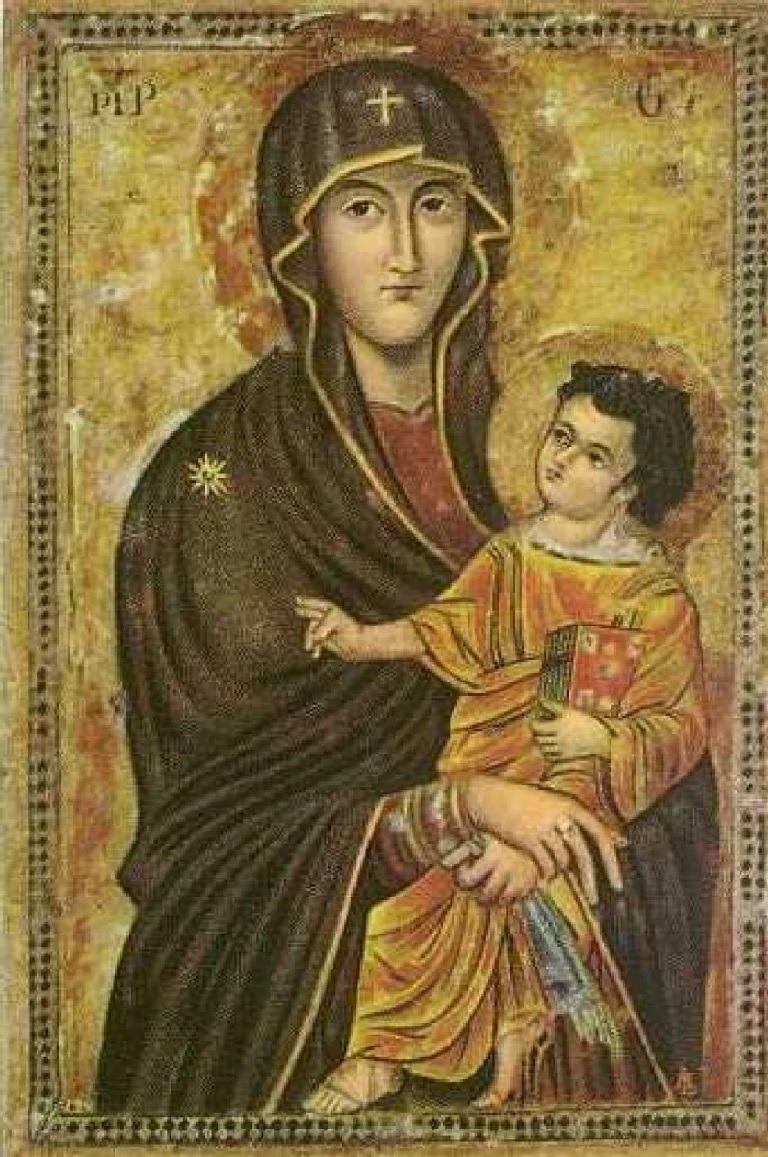 Further to my encouragement to pray the supplicatory canons to the Theotokos as part of the praxis of the Dormition Fast, the canon for compline for Wednesday of tone 8 is posted, below.
Further to my encouragement to pray the supplicatory canons to the Theotokos as part of the praxis of the Dormition Fast, the canon for compline for Wednesday of tone 8 is posted, below.
This could easily be incorporated into your evening prayers, and though relatively short may be part of the ongoing prayerful-dedication of these days of the Dormition Fast to the Mother of God.
On Wednesday evening of Tone VIII, at Compline: Canon of Supplication to the Most Holy Theotokos
Ode1, Irmos: The wonderworking staff of Moses, * striking and dividing the sea in the figure of a cross, * once drowned Pharaoh the pursuing charioteer, * while it saved the fleeing people of Israel * as they fled on foot, * chanting a hymn unto God.
Most Holy Theotokos, save us.
In a manner transcending nature, О Virgin Theotokos, thou hast given birth to God the Word incarnate, Who before was incorporeal, yet came to dwell in the world as God and man; wherefore, we all glorify thee who, after God, art our sure help.
Most Holy Theotokos, save us.
Arrayed in a vesture of many colours, О blessed one who art full of the grace of God, in a manner transcending understanding and all telling thou hast given birth to the Word of the Father, Who became flesh in His ineffable loving-kindness; and thou didst remain an undefiled virgin.
Glory be to the Father, and to the Son, and to the Holy Spirit.
From a royal root thou didst put forth Christ the King, the Word of God, in a manner transcending understanding and comprehension, О pure one, and hast given birth to Him, incarnate from thy pure blood, revealed in two natures, but in a single Hypostasis.
Now & ever, and unto the ages of ages. Amen.
He who proclaimeth thee the Theotokos, О most pure one, prevaileth over every heresy; wherefore, О Birthgiver of God, having given birth unto the eternal Word of God Who immutably became flesh, thou art higher than all creation.
Ode III, Irmos: O Christ fortify me on the rock of Thy commandments, * Thou Who in the beginning didst establish the heavens with understanding * and didst establish the earth upon the waters, * for there is none holy save Thee, O only Lover of mankind.
Most Holy Theotokos, save us.
God made His abode within thy holy womb, О Mother of God, and became incarnate in a manner He Himself knew, and hath saved us by His life-bearing sufferings; wherefore, we glorify thee as the portal of salvation.
Most Holy Theotokos, save us.
The Supremely divine One, Who hath breathed the spirit (of life) into all, became incarnate on earth and dwelt with mankind, having been produced by thy womb seedlessly; wherefore, all of us, the faithful, bless thee with hymns, О pure one.
Glory be to the Father, and to the Son, and to the Holy Spirit.
Having conceived in thy womb Him Who was begotten of the Father before all ages, О Virgin, without knowing a man, thou hast given birth for us to Him as both God and man, perfect and indivisible in both natures.
Now & ever, and unto the ages of ages. Amen.
О pure and divinely blessed Virgin, we all know thee to be the rod which budded forth Christ, the Flower of incorruption, and the golden censer who bore the burning Coal of the divine Essence in thine arms.
Ode IV, Irmos: Thou, O Lord, art my strength and Thou art my power, * Thou art my God and Thou art my joy, * Thou Who, while never leaving the bosom of Thy Father, * hast visited our poverty. * Therefore with the Prophet Habbakuk I cry unto Thee, * ‘Glory to Thy power, O Lover of mankind!’
Most Holy Theotokos, save us.
Of old the ark which received the divinely written law prefigured the life-creating Word Who was ineffably conceived within thy womb, О most immaculate one, richly nourishing the souls of those who chant: Glory to Thy power, О Lover of mankind!
Most Holy Theotokos, save us.
Thou alone wast the true source of salvation, О Mother of God, who through thine all-pure blood gave flesh to the Creator and Fashioner, and through whom the gates of death have been broken down and life given to us.
Glory be to the Father, and to the Son, and to the Holy Spirit.
That in the richness of thy goodness Thou mightest seek out Thine image which was buried by the passions, Thou didst make Thine abode within the Virgin’s womb, and Thou, the Wisdom of God, didst make a temple from her; and having thereby come to dwell among mankind, О Compassionate One, Thou hast saved the ends of the world.
Now & ever, and unto the ages of ages. Amen.
After God it is thee whom we have acquired as an intercessor, О most immaculate one; for thou wast the Mother of God the Creator and Fashioner, Who took upon Himself our form, saved it from corruption and tribulations, and glorified it with divine glory.
Ode V, Irmos: O Light never-waning, * why hast Thou turned Thy face from me * and why hath the alien darkness surrounded me, * wretched though I be? * But do Thou guide my steps I implore Thee * and turn me back towards the light of Thy commandments.
Most Holy Theotokos, save us.
The generations of all mankind bless thee as the one who gave birth to the Creator, Fashioner and Lord, О most pure one, and the noetic leaders of the incorporeal hosts glorify thee as the Mother of God.
Most Holy Theotokos, save us.
The armies of the hosts on high bless thee, О most pure one; for through thee alone we on earth have been united to those in heaven, wherefore we hymn thy birthgiving.
Glory …;
In an ineffable manner, О Virgin, He Who alone is compassionate, the Word Who shone forth from the Father before all ages, made His abode within thee and become a man, delivering us from corruption and leading us up to a life of incorruption.
Now & ever, and unto the ages of ages. Amen. О pure one, heal thou the sickness of my soul, granting me thy
Thou wast clothed with the beauties of virginity, О most pure Virgin, and hast done away with the nakedness of the first Eve, having given birth to Christ Who bestoweth the vesture of incorruption upon those who hymn thee.
Ode VI, Irmos: Cleanse me, O Saviour, * for many are mine iniquities; * lead me up from the abyss of evils I pray Thee, * for unto Thee have I cried, * and Thou hast hearkened unto me, * O God of my salvation.
Most Holy Theotokos, save us.
He Who upholdeth all things with His omnipotent power arrayed Himself in the weakness of the flesh through thee, О all-immaculate Virgin, for the good of mankind, in that He is the Lover of mankind.
Most Holy Theotokos, save us.
The all-accomplishing Spirit descended upon thee, О all-immaculate one, and the Word, of God made His abode within thee and ineffably assumed flesh, though He remained immutable.
Glory be to the Father, and to the Son, and to the Holy Spirit.
Illumine the souls of those who hymn thee in an Orthodox manner, О Bride of God, for the sayings of the prophets proclaimed beforehand thy most pure conception and birthgiving, which are beyond all telling.
Now & ever, and unto the ages of ages. Amen.
We piously hymn the most pure Mary, the truly divine and honored dwelling-place of God; for she contained God, receiving Him Who is infinite and unapproachable.
Lord, have mercy. (Thrice).
Glory be to the Father, and to the Son, and to the Holy Spirit; now & ever, and unto the ages of ages. Amen.
Sessional hymn, Tone VIII: As the all-immaculate Bride of the Creator, * Mother of the Redeemer, who knewest not a man, * and as the receptacle of the Comforter O all-hymned one, * hasten thou to deliver me, * the vile abode of iniquity and noetic plaything of the demons, * from their evil machinations; * and make me the bright dwelling-place of the virtues, * O thou incorrupt light-bearing one. * Drive away the clouds of the passions and grant that, * by thy supplications, * I may receive a portion on high ** and share in the never-waning light.
Ode VII, Irmos: Once in Babylon the fire stood in awe * of God’s condescension; * for which sake the youths in the furnace, * dancing with joyous steps as in a meadow, chanted: * O God of our fathers, Blessed art Thou!
Most Holy Theotokos, save us.
О most pure Lady who conceived the Redeemer of all, grant ineffable and divine deliverance unto me who cry aloud and sing: Blessed is the God of our fathers!
Most Holy Theotokos, save us.
Now have all things been filled with divine light through thee, О most pure one; for thou hast been revealed to be the door through which God held converse, enlightening those who cry out with faith: Blessed is the God of our fathers!
Glory be to the Father, and to the Son, and to the Holy Spirit.
Lo! the divine prophecy of the godly David hath now been fulfilled: They who have acquired the riches of grace truly entreat thy countenance, О pure Birthgiver of God, and now bless the God of our fathers.
Now & ever, and unto the ages of ages. Amen.
О most pure one, thou didst conceive Him Who is God and Lord over all, Whose good pleasure it was to save the race of mankind from death and corruption; and hymning Him as is meet, we cry aloud: Blessed is the God of our fathers!
Ode VIII, Irmos: By Thy grace the children became vanquishers * of both the tyrant and the flames, * carefully observing Thy commandments, * wherefore they cried aloud: * Bless the Lord, all ye works of the Lord!
Most Holy Theotokos, save us.
Cleanse thou the wounds of my soul and the stripes of my sins, О blessed, and most pure Maiden, who from thy virginal womb which knew not wedlock gave birth to Him Who is God over all. Him do the children bless and supremely exalt, throughout the ages.
Most Holy Theotokos, save us.
Resplendent with the beauties of virginity, thou didst become the receptacle of the never-waning Light, О all-pure one, enlightening those who with all their soul confess thee to be the true Theotokos, and who cry aloud: Ye children bless; ye priests hymn; ye people supremely exalt Him throughout the ages!
Glory be to the Father, and to the Son, and to the Holy Spirit.
Sanctified by the Holy Spirit, О all-immaculate Theotokos, thou didst truly receive in thy womb the beginningless Son Who with the Father is equally eternal, Who became incarnate within thee, О pure one, for the benefit of those who cry out with faith: Ye children bless; ye priests, hymn; ye people, supremely exalt Him throughout the ages.
Now & ever, and unto the ages of ages. Amen.
In that thou hast given birth to God in a manner past all telling and understanding, О most pure Mother of God, Him do thou beseech, that all of us who are unworthy may be treated with lenience by Him at the time of His awesome and dread coming, when He shall discern the nature of all who with fear will stand naked before Him and be judged.
Ode IX, Irmos: Heaven was stricken with awe, * and the ends of the earth were filled with amazement, * for God hath appeared in the flesh, * and thy womb was rendered more spacious than the heavens. * Wherefore, the ranks of men and of angels * magnify thee as the Theotokos.
Most Holy Theotokos, save us.
All of us who have rejected eternal life and have fallen, accursed, into death thou hast called again, О most pure Mother of the Redeemer, and hast granted them to hasten to our former homeland; wherefore, О Mother of God, we unceasingly magnify thee.
Most Holy Theotokos, save us.
Readily grant that I may pass over the waves of the perils of this life and its present sufferings, О Theotokos, stilling them, in that thou art good, and guiding me to the virtues of the way of heaven, that I may unceasingly magnify thee as my benefactress.
Glory be to the Father, and to the Son, and to the Holy Spirit.
О pure and most glorious Mother of God, save those who hymn thee with love from all perils, mercifully subduing our turmoil, in that thou hast given birth unto God; for thou canst freely do all that thou dost desire, О Virgin. Wherefore, we all magnify thee.
Now & ever, and unto the ages of ages. Amen.
The honoured Church which Christ thy Son hath acquired with His precious blood, and hath saved from misfortunes and the violence which assails us, in that He is good, do thou show forth as victorious over budding heresy, О joyous Lady.
